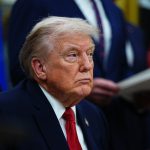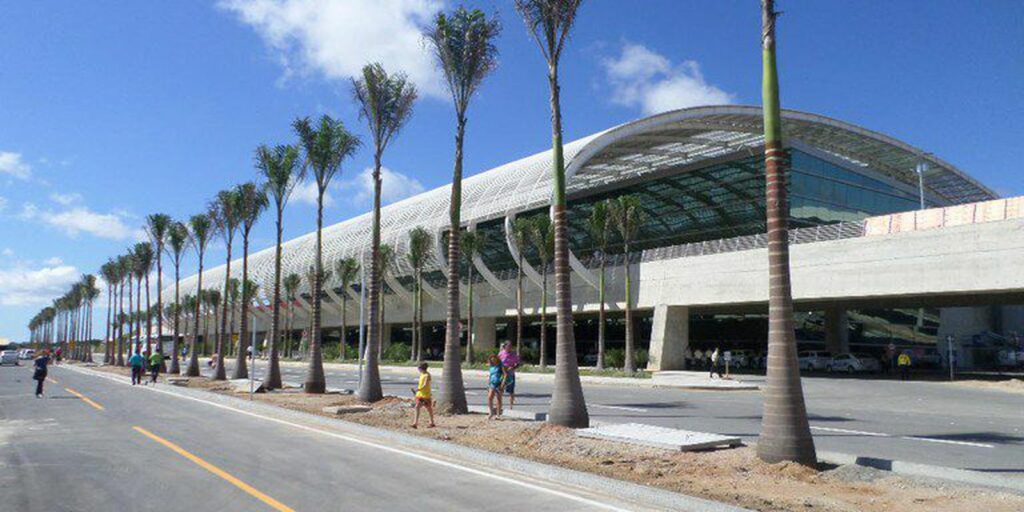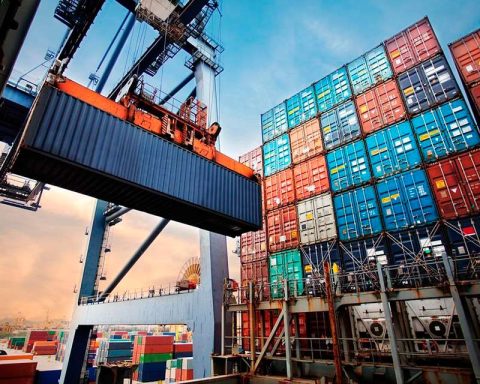“Todo por Chile” is the name of the list that brings together the Party for Democracy (PPD), the Radical Party (PR), the Christian Democracy (DC) and independent sectors, which positions itself as a center-left alternative and which it still regrets the flight of the Socialist Party (PS), which finally responded to the call of President Gabriel Boric and of Approve Dignity. The call was to join “Unity for Chile” after the failed attempt, led by former President Michelle Bachelet, to convene a unitary list in the ruling party.
With historical figures such as Sergio Bitar, Andrés Zaldívar and Carmen Frei among its candidates, the space promoted by the PPD seeks to carry out a campaign facing the public, focused mainly on the center-left electorate, “relieving their approaches, avoiding maximalism and identity agendas , giving assurances and seeking to reach agreements”, as revealed -in this dialogue with He Counter–, Natalia Piergentili, president of the community, who will also compete for a seat in the Constitutional Council, representing the Metropolitan Region.
In this regard, the PPD helmsman assured that her leadership within the party will not be questioned depending on the electoral results of next May 7, and revealed that she is holding fluid conversations with former President Ricardo Lagos, denying that the figure of this It has been decisive in the decision of the board of directors of the community to remain firm in its purpose of competing in separate lists. Finally, she denied that there was any kind of veto to the failed candidacy of the independent Pablo Maltés for the Valparaíso Region, assuring that priority was given to his militants.
-What do you say about the criticism of the candidacy for constitutional counselors of historical figures of the former Concertación, such as Sergio Bitar or Andrés Zaldívar? Do you think that the “old politics” seeks to take over this new constituent process?
-I do not empathize at all with respect to making this division between the old and the new politics. I believe that politics is one, and it must be good politics, which is different, because some time ago it was revealed that youth gave a status in terms of values and in terms of doing things, and I think that this is a mistake. Here we have a political generation that has been part of the history of Chile and that has a lot to contribute from experience, especially from failures. And, for example, in relation to what the Concertación was, I feel that it was a valuable period for the country and part of years of construction and progress, where obviously we feel proud of its achievements, but we have the humility to reflect on it. of their shadows and their slopes. But to say that everything associated with the Concertación is bad is to have no respect for the country’s history. It is evident that there were faults, that the Constitution of the time does not support having generated those majorities for more substantive reforms, of course. But I would say that it is essential to have people who have been part of the history of Chile, who fought against the dictatorship, who know what failed models are, who lived through crucial moments in their political life. I think dismissing that experience because it belongs to the “old politics” seems to me to be nonsense.
– Do you think that in the heat of the election on May 7, the official differences have been further exposed? Is the decision of the PS, in your opinion, a step forward towards the fracture of Democratic Socialism?
-I believe that this election was dramatized from the beginning, in my opinion, wrongly. Because this election, with the institutional borders that were made, with the definition of arbitrators and experts, is a process that is very protected, so that the elected councilors are important, but they do not have the substantive value that they had for the first process. constitutional. But, unfortunately, it was understood that this was once again a watershed plebiscite, where it was said that we all had to go in unity, because, or else, the Government would weaken, all things that I do not share, but I feel that they generated a dent and They penetrated the socialist comrades who felt that they were making a better effort from the list of the Broad Front, which is a decision that I do not share at the base but that I respect.
-Despite the repeated calls of President Boric and former President Bachelet calling for official unity, you did not give up on your idea of competing on separate lists, what is the basis for this decision? Wasn’t the President’s leadership enough to convince them?
-I believe that no election can give in to the idea of having a political approach where one is constituted, and for us it was very important to prevent the center-left –as a value, as a proposal and as an identity space– from being subsumed or engulfed in a list with the Broad Front, which also has an electoral and symbolic niche that is different from ours, which can be complementary, but which is different. So, here it is not that we reject a call from former President Bachelet or President Boric, we accepted both approaches, we analyzed them, but it was worth more for us not to give up our political space, especially when the right is divided between Republicans and Chile Let’s go. Why would we leave the center-left empty, so that it could be occupied by populism and other political forces? And that is a deep conviction that made us take the definition that we took, and that we hope the public understands in this way.
-How much does this election –and its hypothetical results– modify the advancement of the government’s agenda and its main reforms? Do they not assume the risk of a possible break of greater magnitude within the pro-government forces?
-I believe that this election should not be given more prominence than it has, in the sense that parliamentary balances are what they have been since March 11, so that this election does not generate a change in that equation. In addition, the center-left, and in particular the PPD, has been absolutely square with the government’s reforms from day one, because talking about tax or pension reform is part of what we have struggled for in the last 40 years, so that It is not an empty support for President Boric either, but rather a support with convictions. Now, if there is going to be friction, I think so, and if there are going to be some counterpoints, too. But we have the courage to campaign for the public, revealing what our approaches are, avoiding maximalism, identity agendas, providing assurances, seeking to reach agreements, etc. Therefore, that will be the focus, and it will not be saying how bad the one next to it or the one in front is, but rather how valuable my proposal is.
-Faced with your candidacy as counselor in the Metropolitan Region, how much could the electoral result affect the future of your leadership within the PPD? Do you think that a setback in these elections could somehow weaken her role of influence in Democratic Socialism?
-For me, the presidency of the PPD is not a springboard to anything. I have never sought to obtain charges, but I have always tried, since I was a member, to contribute to politics from the spaces in which I am. So, this does not respond to a plan that I had regarding myself and, furthermore, it may be that, as in any election, I may not be elected, but what would have made me feel defeated would be to go against my convictions and against the mandate of my party. But it is not an election where I can take any risk, because I also believe that there are great leaders, whom I admire, who have lost elections: former President Bachelet was a candidate for councilor and lost, former President Lagos lost a primary and a senatorial election , and President Boric himself has had defeats. So, I believe that defeats make you learn, and I have had personal defeats in my life that have made me understand the value of convictions, so I do not give this process the drama that some do, to nothing.
-Was the role of former President Ricardo Lagos decisive in the determination to avoid competing in unity with the Broad Front and the PC? Was it his influence that helped you stick to his decision, despite strong internal pressures?
-I converse with many people whom I admire, so that I also seek in them a counterpoint, advice and a look, and among them, yes, is former President Lagos. He gave me his opinion on this issue, as I also collated it with other actors, so it’s not that I had a particular influence or felt that I had to respond to former President Lagos. He gave me his point of view and I appreciate it, because he has been a great collaborator in my management as president, from anonymity. He sometimes makes me laugh, because everyone who goes to see him gets out selfiesThey put press outside the door, and I regularly go to the headquarters of their Foundation, to have a fraternal and generous conversation.
-Finally, did you or the board of directors of the PPD decide to veto the candidacy of Pablo Maltés in the Valparaíso Region? Could this decision be associated with the political ideas, contrary to the Government, of Maltés and his partner, the deputy Pamela Jiles?
-In the case of Pablo Maltés, as has been indicated, our option generated various sympathies, among those of the Democrats collective and Pablo Maltés, but finally we decided to prioritize not only our militants, but also people who had history, over all in the Valparaíso Region, where, for example, former congressman Marco Antonio Núñez and Jazmín Murillo go, who is a young woman from Viña del Mar who does territorial work in the area. So, one also has to make bets with respect to their own leadership and, therefore, I appreciate Pablo’s interest, where one could discuss what his political approaches are, but I am not making judgments of people, regarding what is said on Twitter. Like Pablo, other people approached us, we included other independents on the list, but in places where we had the strength of our fellow militants, we certainly preferred our own ideas. Now, these judgments of people regarding who they are married to, I think it is too old a thought and, secondly, I think reality is less cinematographic than it seems, in relation to, for example, that he called me Carolina Tohá and other people to avoid her nomination, which is not true. The truth is that we had two seats in the Valparaíso Region, and from day one, our candidate was Marco Antonio Núñez.

















